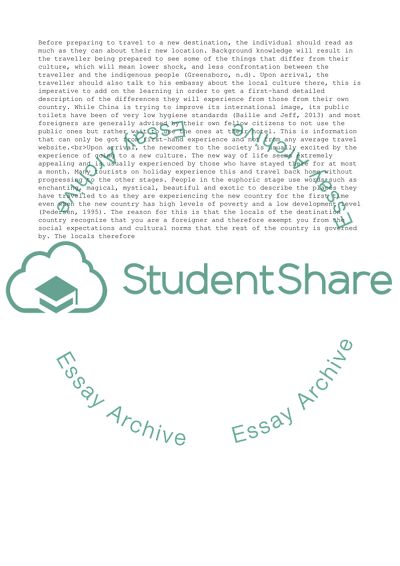Cite this document
(Concept of culture shock and reflective diary Essay - 1, n.d.)
Concept of culture shock and reflective diary Essay - 1. https://studentshare.org/culture/1802675-concept-of-culture-shock-and-reflective-diary
Concept of culture shock and reflective diary Essay - 1. https://studentshare.org/culture/1802675-concept-of-culture-shock-and-reflective-diary
(Concept of Culture Shock and Reflective Diary Essay - 1)
Concept of Culture Shock and Reflective Diary Essay - 1. https://studentshare.org/culture/1802675-concept-of-culture-shock-and-reflective-diary.
Concept of Culture Shock and Reflective Diary Essay - 1. https://studentshare.org/culture/1802675-concept-of-culture-shock-and-reflective-diary.
“Concept of Culture Shock and Reflective Diary Essay - 1”. https://studentshare.org/culture/1802675-concept-of-culture-shock-and-reflective-diary.


